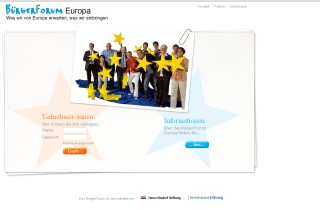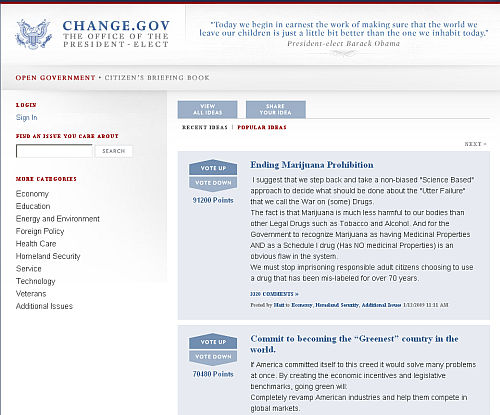
/Please note: This post is not from Hans Hagedorn, but from Steffen Albrecht @ Zebralog…/
In conjunction with the 25th International Conference on Legal Knowledge and Information Systems (JURIX 2012, Amsterdam, 17-20 December 2012), the Workshop on Argumentation Technology for Policy Deliberation will present the results of the European FP7 IMPACT Project, along with invited talks by leading developers and users of argumentation tools for supporting public participation in policy deliberations on the World-Wide-Web.
The workshop will take place on Monday, December 17, at the University of Amsterdam.
For information about the workshop program and organizational details, please consult the JURIX website. Looking forward to seeing you in Amsterdam!

/Please note: This post is not from Hans Hagedorn, but from Steffen Albrecht @ Zebralog – Hans’ avatar is displayed because of a malfunction of PEP-NET’s profile function – we’ll try to fix this…/
Get involved in the latest developments of eParticipation tools!
Policy analysts, decision makers as well as civil society stakeholders and other people interested in policy-making all have to cope with numerous arguments brought forward in policy debates. The EU-sponsored IMPACT project develops open source online tools that help to make sense of the range of opinions about public policies expressed in policy consultations.
In a series of webinars, four new prototype tools will be presented, followed by an evaluation of the tools in which participants can discuss further improvements and the potential impact of the tools on policy-making. Based on material from the EU’s consultation on the Green Paper on Copyright in the Knowledge Economy, the participants will learn how to formalise and visualise arguments, how to estimate the effects of policy proposals with the help of policy modelling, and how opinions about arguments are assessed with the help of structured consultations.
We invite all PEP-NET members and readers of this blog to participate!
Please register for one of the following dates on this website:
https://policy-argumentation.posterous.com/webinar-new-online-tools-to-support-argumenta
The following dates are available:
Webinar with focus on argument reconstruction & visualization:
- 21 August 2012, 11:00–12:00 CEST (Tuesday morning)
- 23 August 2012, 16:00–17:00 CEST (Thursday afternoon)
Webinar with focus on policy modelling & structured consultation:
- 28 August 2012, 16:00–17:00 CEST (Tuesday afternoon)
- 29 August 2012, 11:00–12:00 CEST (Wednesday morning)
Further information is available here. If you have any questions, please contact Steffen Albrecht: impact@zebralog.de
]]>There was both approval and there were also alternative proposals. Thus Francesco Molinari decided to conduct a survey among all members to get a clearer picture of the different interests.
Here are the results of the survey (PDF, 2.5 MB)
There are 3 key conclusions that we leave open for comments and future action:
- Demand: The good response rate (see chapter “Technical Information”) is an indicator that there is a broad interest in the continuation of PEP?NET. Additionally there is a core of about 10 committed members who are willing to contribute by a considerable amount of money (see analysis of Question #4). This gives a clear signal that there is strong demand for a new PEP?NET after the end of the EU funded project.
- Supply: Realised networking opportunities during the last years remained below the very high initial expectations (see analysis of Question #4). Therefore, the next discussion should focus particularly on this issue and should try to find answers to the following question: How can we improve networking opportunities for the different member groups?
- Proposals: The survey was the first step to collect concrete proposals from the
members for the design of the new organisation. Thus, we have to analyse the answers to question #8 in more detail. A volunteer could (a) cluster the proposals and comments received into groups and (b) find speaking headlines for each group.
On June the 25th a Temporary Steering Committee will meet in Berlin and will sort the existing proposals. There will be TuTech’s strategy paper as well as hopefully many short or long contributions. They might fit together or might propose alternative directions.
The Temporary Steering Committee will decide about the next steps. They might organise a broad online-debate amoung all members with specific questions arising in the papers, e.g. about the governance structure or the obligatory contributions of members in terms of money or duties. You can take part in the meeting’s video session on Friday, 25th of June at 16:00-17:00 CET. Please e-mail to Daniel (droleff ÄT politik-digital.de) to get the details.
From your perspective: What are your conclusions from the study? What are your proposals for the services of the new organisation, its legal framework and its business model? Please write us any thoughts, short or long! And be aware: If you do not contribute to this crucial discussion, your organisation might suffer, because the memberships might become too expensive or the network might become too lame, or whatever…
You can submit your proposal by e-mail proposal.filter@hanshagedorn.de or leave a comment on this article. Please send your contributions before the 24th of June.
On behalf of the temporary steering committee
Hans Hagedorn
It seems a bit too sophisticated that Hope+ is promoted as the “first global portal for social change” – because its aims and the campaigning tools remind strongly of other campaigning websites like causecast.org, takepart.com or the German betterplace.org. They all share the idea of connecting people online, get them into action and make the world a better place to live in.
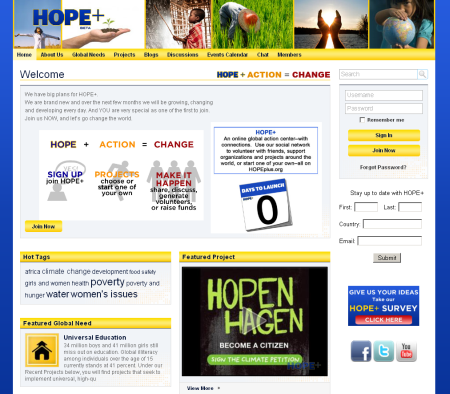
So is Hope+ just yet another online portal to change the world? What can it achieve what the other social campaigning projects did not achieve yet? Or, to use economic language, what is the unique selling point of Hope+?
According to its organizers, Hope+ will focus strongly on the individual social causes posted by the users and use the social network relationships of all members to complete the campaigns.
What Hope+ already did achieve – and in this point it differs from the other websites mentioned earlier: PoliticsOnline could invite a lot of financially strong and popular founding partners, like Bill Gates from Microsoft. The organizers also asked Barack Obama to support Hope+. This strategy already let to a small media buzz, especially Obamas endorsement attracted interest and got people hooked.
But big names and high ambitions also create big expectations. We’ll keep an eye on the project and will see how Hope+ develops and if the Obama-hype is strong enough to carry this project. It will be also interesting to see how Hope+ and the other social campaigning websites get along in the future, if there will be co-operations or a mere coexisting.
Simone Gerdesmeier, Zebralog Berlin
]]>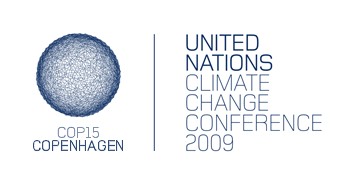 On December 7th and 8th the COP15 will take place: Politicians, IGOs and NGOs will meet in the Danish capital and discuss how to reduce carbon emissions to decrease global warming. They aim to sign a new agreement for climate protection, a follow up of the Kyoto protocol. In forefront of the Copenhagen event, online debates try to influence the discussions’ outcome.
On December 7th and 8th the COP15 will take place: Politicians, IGOs and NGOs will meet in the Danish capital and discuss how to reduce carbon emissions to decrease global warming. They aim to sign a new agreement for climate protection, a follow up of the Kyoto protocol. In forefront of the Copenhagen event, online debates try to influence the discussions’ outcome.
The Kyoto protocol will expire in 2012. Until then, a new global agreement on climate change is needed. But the outcome of COP15 – the Copenhagen Climate Conference of the Parties to the UN Framework Conventions on Climate Change – is still unclear; experts suppose that COP15 will end with a political agreement signed by world leaders instead of with a binding treaty. Especially that the US Senate delayed a decision about a climate change legislation bill lowered the expectations for the Copenhagen meeting.
Different approaches to online discussion
To influence the governments meeting in Copenhagen, civil groups got into action, using different approaches to online debate and online activism to motivate and inform the public.
Here are some of the approaches they try:
- The online campaign TckTckTck – representing environmental and humanitarian organizations, faith-based groups, youth groups, trade unions and individuals – is using mass participation to put pressure on the politicians. The people participating in online debates and polls for a binding treaty in Copenhagen are also the people voting for governments. So the organizers hope that the voice of a mass of people could influence the meeting. TckTckTck has chosen the so called Open Campaign to gather a lot of support and a lot of media attention: The website serves as the organizing hub for a lot of different actions, all using the TckTckTck logo as a unifying element.
- The British 10:10.org focus on concrete action: In 2010, all people of Great Britain, individuals as well as companies, schools, libraries etc, should reduce their carbon emission by 10 percent. Therefore, the organizers behind 10:10.org work together with energy companies, which give tips and support how to cut carbon emissions. Other countries should join the action. If enough people and companies participate and show the government how easy it is to reduce emissions, the governments could only join in, so the organizers´ plan.
- The project World Wide Views on Global Warming worked with a classic deliberation process: In September 2009, 4.000 people from all over the world came together in their countries, discussed measures to reduce global warming and formulated their ideas. Each meeting brought together 100 randomly selected people. All quantative results of the meetings were aggregated through the project-website. The core functionality of this website is simple, however very innovative and informative: By comparing polling results of different world regions (e.g. Bangladesh and USA) you get a good impression of the differences and similarities in the opinion of an informed public. The Danish minister for climate protection serves as the projects chairman – the project wwwviews therefore has a close link to the COP15 participants.
- Of course climate activists also use social networks like Facebook: The Facebook group “Copenhagen. We Are Climate!” was set up short-term before the COP15 in November. It recruited about 2,700 members in five days, created an active discussion and sharing of links and information and collected video submissions of group members.

Online-campaigners going offline: TckTckTck-supporters of Greenpeace Switzerland.
Flickr, Greenpeace_Switzerland, CC by-nc-nd US 2.0
These are just some international examples of the online debate in favour of a binding treaty in Copenhagen. Even more is happening on the national level, with websites offering information and organisation bases for on- and offline campaigns. Most actions share similar goals: The temperature increase should be kept below 2 degrees, emission should be reduced by 20-40% till 2020, and also development countries should be enabled to cut their emissions. It is striking to note that one can hardly find major online-projects in disagreement of a binding treaty. Apperently those forces do not rely much on public campaigning.
Influence?
But are these online debates powerful enough to have a real influence on COP15?
From the authors’ impression governments as well as the public are influenced mainly by following considerations:
- Ecologic considerations like: Do the country and its people suffer from effects of the global warming?
Then the government is more likely to support binding agreements on cutting carbon emissions. The Maldives for example, a developing country, but seriously threatened by sea-rise, wants to contribute to mandatory limits of greenhouse gas emissions.
- Economic considerations like: Does a binding treaty threaten work-places in the carbon and oil industry?
In the USA, the official position to climate change and global warming changed with Barack Obamas inauguration. Nevertheless, it is not easy for the Senate to decide about a bill concerning climate change legislation, the American Clean Energy and Security Act. Lawmakers from coal and manufactory heavy states are under pressure from their voters – the people fear for their jobs and are therefore worried about a climate deal that would bind the US to cut carbon emissions.
China, the world’s biggest emitter of greenhouse gases, is another country that noticeably suffers from effects of global warming, e.g. floods, storms and droughts, leading people into poverty. Therefore, complaints about environment were increasing at a rate of 30% a year in 2006.
So following Chinas latest five year plan, the energy intensity should have been cut by 20% till the end of 2010, reducing the carbon emissions by an estimated 1 billion tons – but Beijing has already fallen behind its schedule here. The government also plans to obtain 15% of Chinas energy from nuclear or renewable energy sources.
But the country also has a rapidly growing industry and depends heavily on coal for economy extension. Also, the oil and coal sectors are dominated by state owned enterprises, so the government itself has an interested to keep these companies alive and prosper. So, there are still no promises coming from Beijing for COP15.
In the case of Brazil, economic and ecologic considerations go hand in hand. The country wants to cut its carbon emissions about 40% till 2020, mainly by reducing the deforestation of the rain forest. Economic considerations on the other hand let politicians to support mandatory limits of carbon emissions as well: Brazil is producing sugarcane, main source for bio ethanol, and is hoping to raise its export.
Is the online world half-blinded?
We reckon that it is not possible to measure the direct effect of online-dialogues on the negotiations in Copenhagen. However, our impression is that online-media play play a different role in the public discussion of either ecologic or economic implications: While the ecologic side is covered widely by many projects, there is little evidence for serious discussion of the economic side of the medal. That means that most of the barriers to an binding treaty in Copenhagen are not addressed properly in the online sphere. Therefore, we belive that climate campaigners should focus more on the economic issues, in order to get a deal done.
By Hans Hagedorn, Simone Gerdesmeier, Zebralog
]]>German Federal Minister for Family Affairs, Ursula von der Leyen, recently caused a lot of protest from net activists. In an attempt to fight child pornography, she introduced a law that obliges Internet Service Providers (ISPs) to install „Stop-signs“ in front of corresponding websites. Her opponents criticize this plan, because of the stop-signs being technical insufficient (they can rather easily be circumvented through other DNS-Servers) and they just hide the problem instead of fighting it.

German Minister Ursula von der Leyen facing protests against her Internet filtering plans. by jan.gosmann, flickr.com, CC by US 2.0
This is just one example of how governments try to control the Internet. But not only the state, also ISPs have an interest in controlling content and Internet access. This article gives a short overview of different attempts.
The ideal of the Internet follows the principle of Net Neutrality, where all content is treated equal, resp. neutral, and can be accessed equally by everybody.
But reasons why governments and industries try to control the web are manifold:
# First, there are social and political reasons, like dealing with offensive content, hate speech, racism or terrorism. This affects content control, e.g through web filtering, content removal, URL blocking or the banning of search results.
# Secondly, there are economic reasons, affecting access control, e.g. ISPs offering higher bandwith for customers who pay higher rates. As well, ISPs could allow faster access to their own content than to the content of their competitors.
# Thirdly, there is the question of copyright protection.
USA
In the US, the political discussion focuses on controlling Internet access. President Barack Obama revived the debate about Network Neutrality in 2009 when he included it in the American Recovery and Reinvestment Act. The money provided by the state to foster broadband connection, 7,2 billion US-Dollars, should be used to “support the principles of network neutrality to preserve the benefits of open competition on the Internet.”
Nevertheless, this does say nothing about social control of the web. According to the OpenNet Initiative (ONI), an initiative monitoring Internet filtering all around the world, Web filtering in the USA relies mostly on content removal than on URL blocking. Most urges to remove content are by private action, not by the government. Internet users can also opt to install a filtering software on their computer, blocking the access to offensive content.
This filtering software is obligatory for public schools and libraries which want to get federal funding for Internet access.
Concerning copyright protection, the US follow the so called notice-and-takedown provision: As soon as an ISP is informed about a copyright violation, it has to remove this content from its service.
EUROPE
The European Union undertakes efforts to create a set of common policies and practices. Recently, the EU debates about the telecoms package which aims to unify the EUs telecom market for all member states. It is expected to become law in late 2009 or in 2010.
Especially France voted for adding a strict copyright protection law to prevent file sharing by cutting of file sharers internet access. This caused protest by European civil organisations and data protection activists. The European Parliament then amended the package once again, adding the abstract:
“(fb) applying the principle that no restriction may be imposed on the fundamental rights and freedoms of end-users, without a prior ruling by the judicial authorities, notably in accordance with Article 11 of the Charter of Fundamental Rights of the European Union on freedom of expression and information, save when public security is threatened in which case the ruling may be subsequent.” (see Wikipedia)
Net activists still fear that the telecoms package gives ISPs the right to limit Internet user’s access to websites and gives companies the right to privilege their content over other data, creating a “split internet”.
Web filtering in Europe
According to ONI reports, web filtering is rather the norm than the exception in most European countries. Filtered content includes child pornography – see the example of Germany in the beginning of this article – racism and hate speech. Some countries, like Norway and Great Britain attempt to also filter content that’s legal in real life, like gambling.
AUSTRALIA
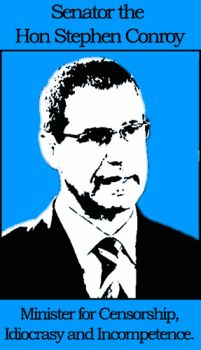
Mocking of Australian Minister Stephen Conroy. by lkalnk, flickr.com, CC by-nc-sa US 2.0
Australia implies one of the most restrictive Internet policies of Western nations, states the ONI report. Australia’s government set up an entity which can take down websites offering offensive content, the Australian Communications and Media Authority (ACMA). As soon as offensive content is found on websites hosted inside Australia, ACMA issues a take-down notice to the ISP, which then has to take this content down.
Furthermore, government promotes and finances an “opt-in” filtering programme: Users can voluntary accept filtering software that blocks offensive content of websites coming from outside the country.
Telecommunication Minister Stephen Conroy plans an even stricter Internet filtering programme: Basing on a blacklist of URLs, the websites on this blacklist should be blocked for all Australians. But recent trials showed that also non-offensive content was filtered accidentally, for example the website of an Australian dentist.
The planned Internet filtering is also criticised by ISPs that fear that the Internet performance could be hit.
Global action needed
While the European Union tries to harmonize the telecom market and sets up common laws for all member states, a global action to imply the principle of Net Neutrality is still missing. Participants of the World Information Summit and its follow-up, the Internet Governance Forum, pledge for a global entity to ensure a neutral Internet Governance.
But it also remains unclear, which institution should play the part of this neutral entity. Some researchers argue that ICANN is not neutral enough, after the association refused to accept an xxx-top level domain for pornographic content. So, who should be the global watchdog? Should it be ICANN nevertheless? Should it be a completely new institution?
by Simone Gerdesmeier, Hans Hagedorn, Zebralog
]]>a European news network. With Blogactiv, the EurActiv-team wants to give Europeans the possibility to “better engage in online in the political debate on key European issues”.
Blogactiv allows an interested public to set up own weblogs and write about their views on the European Union and about European developments concerning their own countries. Additionally there is a weblog for guests who don´t want to set up own blogs, but who want to post articles nevertheless.
The aim as it is published on the website is pretty ambitious: “Blogactiv will become the premier source of content on the future of Europe.” This still seems a way to go:
It is planned to allow blogging in ten languages – but at the moment writing on the platform is restricted to English, French and German. The other languages (e.g. Polish, Romanian and even Turkish) are still waiting to be activated.
While the English and French sections feature quite recent posts, most of them coming from journalists, political analysts, interest groups and so on, the German section is rather empty, the latest entries coming from summer 2008.
by Simone Gerdesmeier, Zebralog Berlin
]]>And indeed politicians like German chancellor Angela Merkel (CDU) or the counter-candidate Frank-Walter Steinmeier (SPD) do have their profiles in well-known social networks: You can find their profiles on Facebook as well as on the German social networks StudiVZ and MeinVZ. Candidates´ logos and websites resemble Barrack Obamas Websites with big pictures, videos and links to other online activities (see Merkel, Steinmeier).
But does it transferring the American campaign to the German Federal Elections really work?
Micah Sifri says: No!
Sifri founded the web-portal Personal Democracy and writes for the weblog Techpresident.com. In an interview with the German web-format “Elektrischer Reporter” he says that the main problem is that the German elections are status-quo-elections rather than change elections: “In a status-quo-election, where the candidates are not exciting, the internet won´t change that.” Only when there is a desire and a real chance for political change, volunteers who can exhaust the possibilities of the internet get more important.
According to Sifrin, Obama had understood the power of these volunteers and of voter generated activity and did not concentrate on one specific tool or one specific network, but on a combination of them all. (You can view the video-interview here: https://www.elektrischer-reporter.de/rohstoff/video/152/ . The audio is in English.)
Nevertheless some projects by civilians give an anticipation how a voter-driven activities online could look like in Germany. One of them is website “wechsel-waehler.de” (Wechselwähler meaning swing voter). Six swing voters moved in a shared flat where they will live until the elections. They blog about their political viewpoints and about recent news – and on each Sunday they have breakfast with a political guest. Videos of these Sunday roundtables can also be viewed on the website.
Simone Gerdesmeier, Zebralog Berlin
]]>Special about these ideas is that they were not gathered in a quick opinion poll. Instead they are the result of a focused discussion, combining offline- and online debate, in which citizens tested and qualified their original opinions. What are the abilities of such an online dialogue and where are its limitations? European Elections will be held in June 2009. But voter’s attention started quite low: In February only 30% of the European citizens were sure that they want to cast their votes for a new European Parliament. 62% did not even know that the elections will be held. 361 citizens living in Germany proved themselves to be very interested in the European Elections and in the future of the EU. From January to April 2009 they participated in the BürgerForum Europa and discussed challenges and solutions for Europe.
German chancellor Merkel: “You are involved in something very exciting.”
The BürgerForum Europa has been initiated by the German Bertelsmann Foundation and Heinz Nixdorf Foundation. The organizers developed a combination of live events and online discussion. In February 2009 all participants met in Berlin to choose the topics for their debate. In the following two month of intense online debate they completed an agenda consisting of 16 solutions. In April 2009 the participants met again, this time in the old German parliament building in Bonn, and discussed their demands with five candidates for the European Parliament. This project-design was chosen to show new options for citizen participation. Instead of asking experts only, the organizers wanted to learn about citizens’ opinions, ideas and impulses, said Guther Thielen, chairman of the Bertelsmann Foundation.
The 361 participants, chosen at random, came from very diverse socio-cultural backgrounds and cover a wide range of professions, age, education – and opinions as well. The live event in Berlin got attention from high-ranking politicians: German chancellor Angela Merkel visited the participants and discussed Germany’s role in the European Union. “You are involved in something very exciting,” said Ms. Merkel. “I really welcome this initiative. We want the citizens to know something about the European Union and I think it’s very favourable that you do not only read about Europe, but work on your own ideas as well.”
German chancellor Angela Merkel and participants of the BügerForum Europa
(Foto by Bernhard Link, Berlin)
An online platform for intense and focused debate
In Berlin, the citizens discussed first approaches for their agenda, framed challenges and thought about possible solutions. Challenges and solutions were transmitted to an online platform, where the participants completed their agenda in ten weeks of intense debate. They worked together in eight committees: constitution, institutions, European identity, social policy, resources and European law were some of the topics in question.
The online platform was planned and moderated by Zebralog. It is based on the software “discoursemachine 5” by Binary Objects. Contrary to classic online forums, the BürgerForum consists of special workflows which enable hundreds of people to work together efficiently. “Citizen Editors” assure the balance between contradictory opinions, votes and rankings condense comments to a concrete outcome, and moderators foster a balanced participation and a transparent process. These workflows base on Zebralogs long-time experience with online-dialogues.
Participation was unusually high compared to similar projects: 96% of the members wrote comments, 80% to 90% participated in the online votes and rankings. All in all about 10.000 comments were gathered during the online discussion, of which 7.355 regarded to the debate about the solutions.
Election Appeal
The online discussion is followed by a phase for more classical PR: organizers and participants share the task to promote the citizens’ agenda in the general public and to inform political executives. Amongst other things the online platform has been redesigned to enable a deliberation between thousands of people – with a minimum of human moderation. The original participants themselves guide through the online tool, so that users are welcomed by real people from the most diverse backgrounds. This brings an individual appeal to the discussion and adds authenticity to the process. Part of the online tool is also an election appeal.
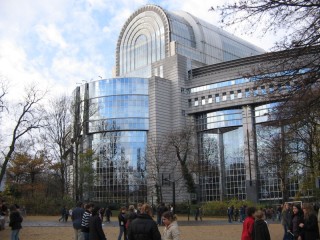
The European Parliament (wikimedia.org)
This citizen dialogue was already the second of its kind – a pilot project was carried out in 2008 with the “BürgerForum Soziale Marktwirtschaft”, a citizens’ dialogue about social market economy. The pilot projects methodical conclusions have been an important foundation for the recent project.
Accomplishments and limitations
Looking at the experience from a broader perspective, we can consider the following accomplishments and limitations:
Accomplishments:
- Political Activation!
The participants form their thoughts about the topics at hand in a very intense way. The effects probably exceed the results of other forms of political opinion building (e.g. through media consumption, discussions with the own social circle, taking part in polls etc). - Balanced Participation!
The online platform enables citizens from very diverse backgrounds to work together in a way that neither overstrains nor underchallenges anybody. For this, it is necessary to design asynchronous workflows: Slow thinkers get the time they need, while fast thinkers can skip things as they please. Having said this, the process also has to be synchronous: Mutual decisions have to be made and result must be achieved within 10 weeks. All this can be done with participation quotas of 90% – however professional online-moderation is vital. - Qualified Results! The platform allows hundreds of people to work together on normative texts and to achieve structural qualified results, similar to classic party programmes. Related web 2.0 tools are mostly restricted to descriptive texts (e.g. Wikipedia) in which false and true can be identified without doubt. The BürgerForums workflows proved to be more efficient to work on texts with valuations.
Current Limitations:
- Connection With Politics and Public?
The discussion process included high ranking politicians through all phases: The opening event in Berlin was visited by chancellor Merkel, MEPs took part in the online discussion, in Bonn the citizens discussed their ideas with candidates for the European Parliament. Still it is not clear which effects the participation process will have on political executives. Also the dispersion of the elaborated results in the general public does not equal the effects of a convincing PR campaign.An important reason for that might be a tradition of the political daily routine: just a few politicians can imagine getting useful and valuable incitements through citizen participation. Same accounts for journalists and their audience. Considering the custom of producing results of citizen participation as “final results” or similar monolithic formats, these findings are not really astonishing.
For future projects it will be necessary to think about the delivery-formats right from the start. The results should be communicated in a way that is interesting and exploitable for the receiver.
- Mass-Participation?
While on the Internet, people count in thousands only. Projects that focus on “only” 350 participants might not be taken seriously enough. Even that these 350 participants went through a complex process of opinion forming might not really count. Will similar projects also work with hundred thousands of users? Experience gathered with the recent BürgerForum suggests that it might be possible – but that’s still a way to go. - Excellent Results?
According to the concept of ‘collective intelligence’ the great achievements of a society depend largely on its ability to recombine the small achievements of individuals. As we say “The whole is more than the sum of its parts.” If true, this principle applies since the beginning of mankind and is nothing new. And every governance system is nothing else than a current method of combining and integrating smaller achievments. The additional interconnetivity through the means of the Internet offers – in a theoretical view – a large increase in collective intelligence. But this is just the theory and we need to solve the methodical problem: How can thousands of people work together on one question in a constructive way? Judging from the promising small experiences with the BürgerForum Europa, further development of the methods can be expected. This will help us to produce even more than just “good” collective results.
by Hans Hagedorn and Simone Gerdesmeier, zebralog.com
]]>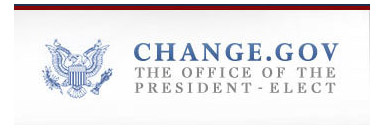 Barack Obama’s Transition Team promised to build the most open and tansparent transition of all times. How did they carry on Obama’s sucessful online election campaign and how did they involve citizens online? We had a close look at the engagement tools used on change.gov – the Citizen’s Briefing Book, the discussion forum “Join the Discussion” and a tool called “Open for Questions”. Furthermore we give some predictions of the next steps of Obama’s Administration Online-Team.
Barack Obama’s Transition Team promised to build the most open and tansparent transition of all times. How did they carry on Obama’s sucessful online election campaign and how did they involve citizens online? We had a close look at the engagement tools used on change.gov – the Citizen’s Briefing Book, the discussion forum “Join the Discussion” and a tool called “Open for Questions”. Furthermore we give some predictions of the next steps of Obama’s Administration Online-Team.
On January 20th, “change will come”: Barack Obama will be sworn in as the 44th President of the United States. With his elaborate online election campaign, he build himself an image as being the “digital president”, inseparable from his Blackberry and skilled in using online-tools for direct communication with his supporters. His online success raises great expectations for the presidential communication strategy during the Administration: According to PEW Internet Research, about 46% of his supporters expect to hear from their candidate directly; about 62% want to be asked to support the policies online.
While there is still to see how the online-movement continues and if the momentum created by his campaign can be carried on during the Administration, it is time to have a look at how citizens were involved during the transition. After all, the Transition Team announced the ambitious goal to build the most open and transparent transition of all times and wanted to offer opportunities to participate in redefining government.
The Citizen’s Briefing Book
The Transition Team started to engage citizens online on change.gov with a discussion forum: “Join the Discussion” and an online tool for posting questions: “Open for Questions”. But the probably most interesting and promising participation-tool was introduced just on Monday before the Inauguration: The Citizen’s Briefing Book. Users can publish their opinion about any topic concerning the incoming Administration as well as rate and comment on the suggestions. Transition Team member Valerie Jarret announced in an E-Mail: “The best-rated [ideas] will rise to the top, and after the Inauguration, we’ll print them out and gather them into a binder like the ones the President receives every day from experts and advisors. If you participate, your idea could be included in the Citizen’s Briefing Book to be delivered to President Obama.”
The system itself is quite easy to use: Users have to log in before posting an idea or a comment with a WYSIWYG-editor. They can choose if they want to see the most recent or the most popular ideas. Voting is rather simple, too, using big and clear buttons. Users can not only express their agreement, but also their disagreement with a suggestion: “Voting up” means the idea wins ten points, “voting down” means the idea looses ten points. Every idea can just be voted on once (as long as a user does not log in with several accounts).
Categories according to politic fields give a bit of a structure to the huge amounts of submitted ideas. Not all of the comments really hit the point, some are redundant, and some participants use the ideas to start meta-discussions about the engagement-process itself. An active moderation is not visible. But looking at the highest ranking suggestions shows that the user-rating seems to work – just ideas dealing with real policies, including a relatively wide field of topics, have been voted to the Top Thirty.
Still, the participants submitting meta-comments raise some points the Transition Team should take into consideration: e.g. a user called “Early Bird” suggests to “bring cooperation to the Briefing Book buy (sic!) providing a way for participants to combine their ideas with other participants and edit them as a group.” Until now, it is not possible to edit the ideas once they are submitted. User collaboration is restricted to voting and commenting – and it is not clear, if and how the comments will be included in the final briefing book. Also an opportunity to combine similar ideas seems useful, considering the redundancies. For example, Idea No. 1 (on Friday, Jan. 16th) dealt with the legalization of marijuana, especially for medical purposes – a topic already raised several times in the “Join the Discussion”-forum and the “Open for Questions” tool. Also some other contributors submitted basically the same idea to the Briefing Book.
Join the Discussion
The Transition Team and members of the incoming Administration already react to the submissions in video-postings on change.gov – following the model they used to give answers to the three discussions held with “Join the Discussion”-tool and the questions gathered with “Open for Questions”.
Considering the Citizen´s Briefing Book, “Join the Discussion” seems a bit like a finger exercise. Three discussions were held until the Inauguration, starting on Nov. 26th 2008: about Health Care, about the economic crisis and about service and social causes. Contributions ranged from 3,700 comments submitted in one week during the Health Care discussion to 4,700 during the discussion on social causes.
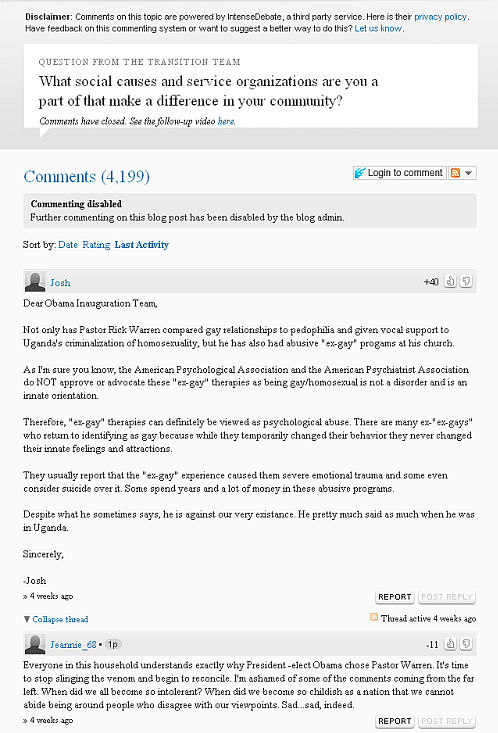
Screenshot of Join the Discussion
While the high level of participation and the fact that officials answer user-questions seem to speak for a successful engagement, the implementation raises some questions. “Join the debate” uses Intense Debate (LINK), a threaded discussion forum. This does not seem to be a very practical choice, because there are almost no ways to structure the discussion. With a high traffic and a lot of people commenting – as you could expect with a presidential debate forum dealing with questions of national importance – this inevitably leads to some redundancies. In a discussion on DoWire, e-participation experts criticize the system for leading to a low signal-to-noise-ratio and a rather unfocused discussion. Also an informed debate is not really possible because no background information is provided.
An effective moderation seems almost impossible due to the huge amount of comments and the unstructured threads. But then, there are no hints for any active moderation besides the comment policy stating that the Transition Team reserves “the right to remove violations“. So the chosen system makes it a very time-consuming process to evaluate the comments. The blog-posts claim that the answering team-members have read all of the thousands of entries – it would be interesting to know how much time they have spent with this task. In addition, it’s not really clear how the comments answered in the video posts have been chosen – here the Transition Team shows not as much transparency as promised.
Open for Questions
Like the other engagement-tools, “Open for Questions” also proved to be rather successful: during the first round about 20,000 people submitted 10,000 question and cast 1,000,000 votes; during the second round even over 30,000 people participated, submitting about 76,000 questions and casting over 4,7 million. votes. “Open for Questions” uses Google Moderator – a tool which seems quite handy, easy to use and has the advantage of presenting and highlighting random questions, so that users get a chance to vote on others than the already high ranking questions. But it leads to questions concerning the data security: according to Google Moderator’s Terms of Use, the content is stored and processed by Google.
An Impressive Start and the Next Steps
Having said this the achievements of Obama’s Transition Team are impressive:
• A good level of transparency in their online-dialogues, matched with other transparency activities (e.g. publication of internal meeting results)
• Motivation of ten-thousands of citizens to raise their voice in political online-dialogues
• Implementation of three successful major online-dialogues with minimal time for preparation.
Especially the latter is most astonishing for people like us, who offer their services to public organizations and are used to long and tiring negotiations before online-dialogues can actually start! It proves again, that the development of e-participation is not hindered by methodology or technology, but by lack of political will. If decision makers are determined to ask their voters, and provide their team with the necessary resources, it is very easy to apply the tools quickly and successfully.
What will be the next steps of Obama’s Administration Online-Team?
• They will ask their users to abandon the status of anonymity and become reals citizens with names and sociodemographic attributes. For voting on YouTube videos anonymity is fine, but if the presidential briefings will become more than a public-relation-tool, the people behind have to identify themselves.
• Voting on topics will be bound to deliberation. If you want to get the “wisdom of the crowd” you have to ensure, that most of the crowd is reasonably informed about the topic at hand. Otherwise bias takes over and you get misleading voting results.
• President Obama will transport the results of the online-dialogues from the Internet-sphere to the television mass media. This will generate even more participation in forthcoming online-dialogues but also more pressure on the actual use of the results.
• On matters of foreign policy, Barack Obama will launch a global online-consultation.
• Even with high numbers of participation, traditional policy makers will fight a strong battle against the the new player in the field. They will try to undermine the reputation of the “aggregated citizen-recommendation”.
These are intuitive predictions of the future… what do you predict?
Hans Hagedorn, Simone Gerdesmeier, zebralog.com
]]>